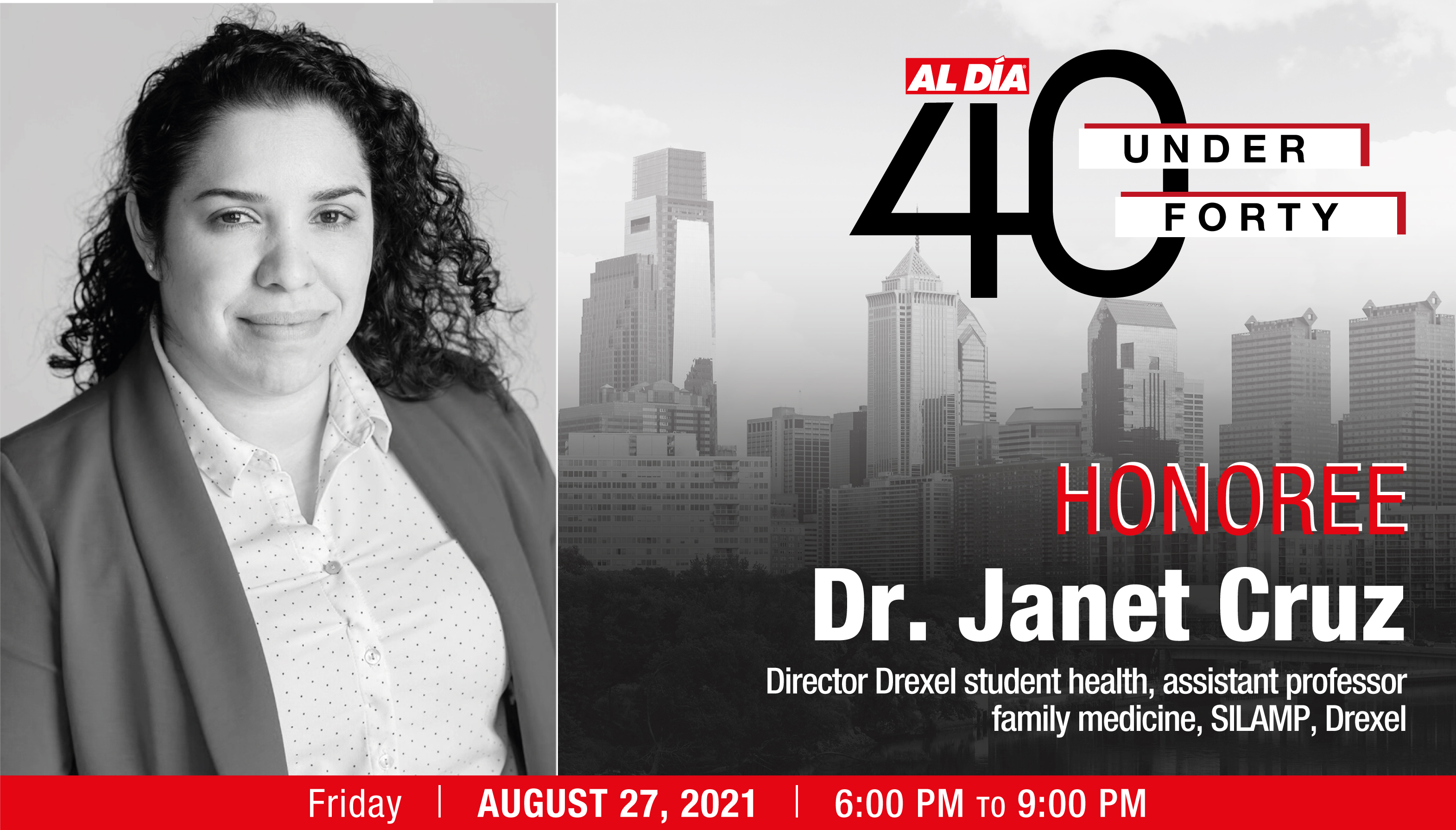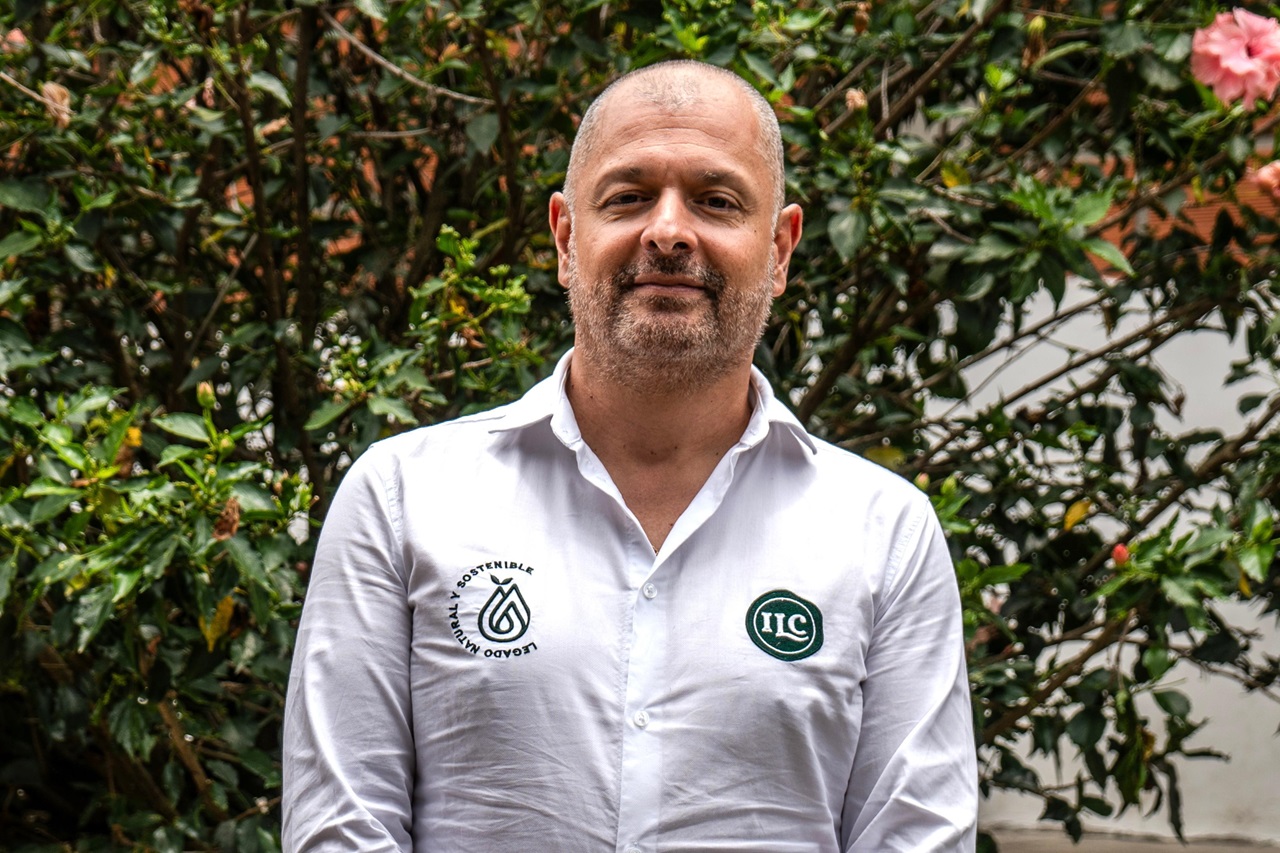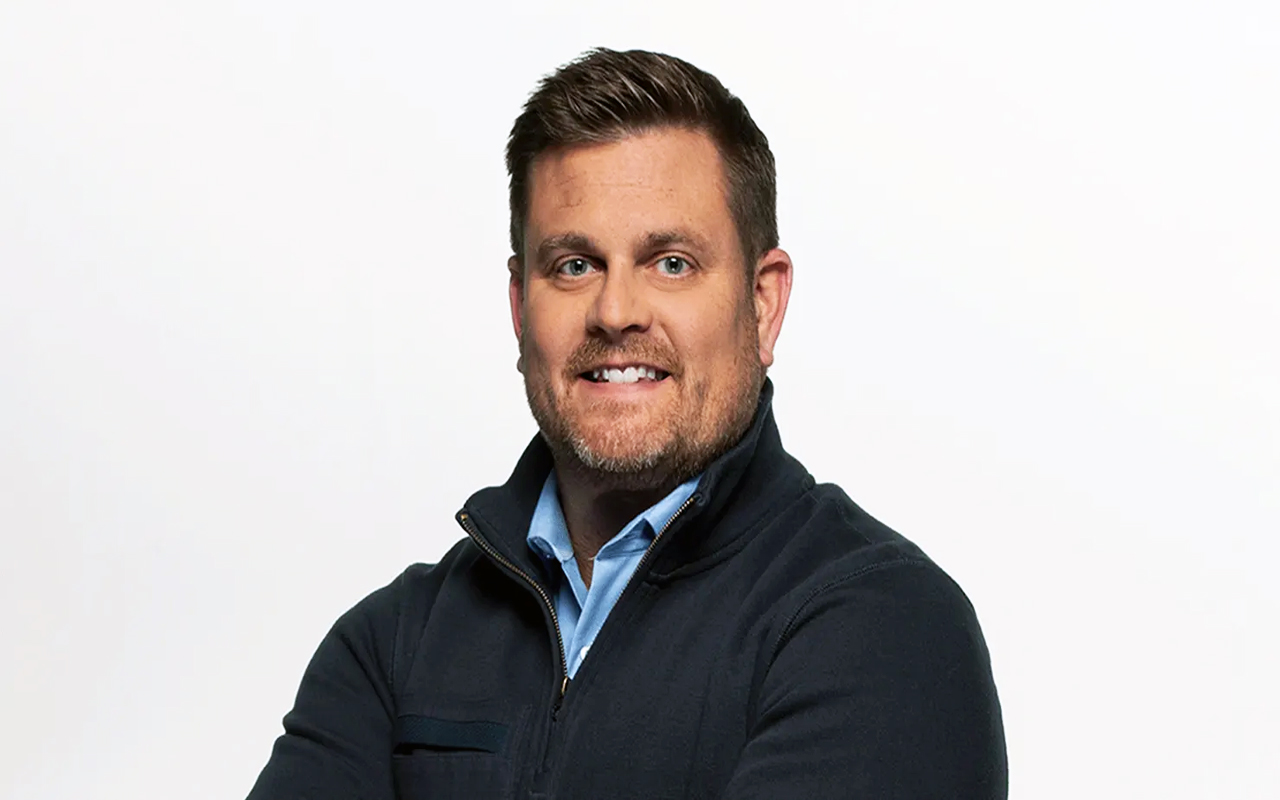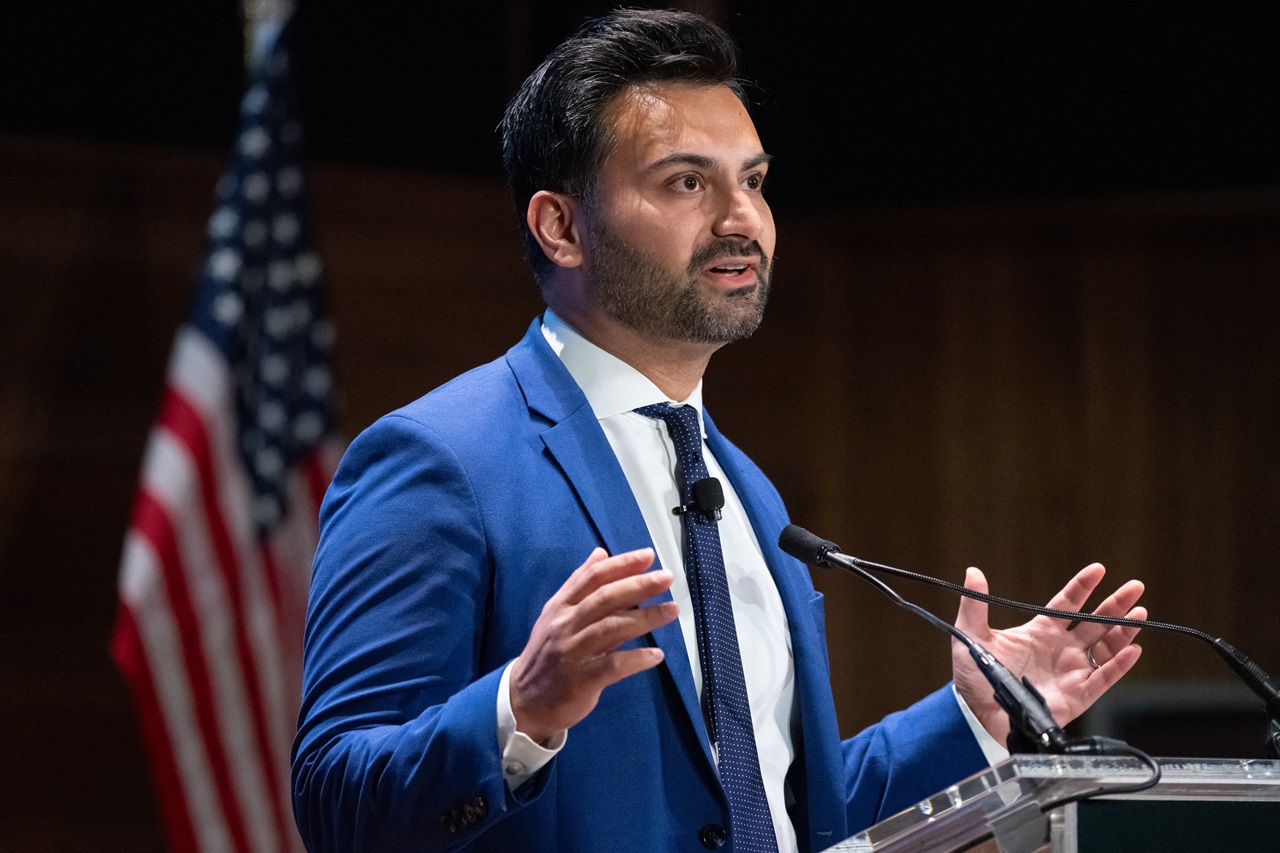
2021 AL DÍA 40 Under Forty Honoree: Dr. Janet Cruz
At the upcoming AL DÍA 40 Under Forty event on Aug. 27, Dr. Janet Cruz will be one of the 40 honorees.
The second annual AL DÍA 40 Under Forty event will serve to highlight and showcase some of the most diverse and impactful young professionals across the Philadelphia region.
At the event, taking place on August 27, 2021, Dr. Janet Cruz will be one of the 40 honorees.
Dr. Janet Cruz, is a board-certified family medicine physician in Philadelphia. She cares for patients at in University City, and serves as medical director of the Drexel Student Health Center. She has a clinical interest in women's health, sexual health, and adolescent and college medicine.
Before coming to Drexel, Dr. Cruz was a United States Air Force military physician and medical director for the 436th Medical Group at Dover Air Force Base. Prior to that, she spent three years as a staff family medicine physician for the 48th Fighter Wing at RAF Lakenheath Air Base in the United Kingdom. In addition to clinical responsibilities, she coordinated training programs for wartime contingencies, humanitarian assistance and disaster relief response.
Dr. Cruz is a graduate of Montclair State University, earning a bachelor's degree in Biology, before earning a doctorate of medicine from the University of Medicine and Dentistry of New Jersey.
RELATED CONTENT
Here are Dr. Janet Cruz's responses:
Biggest challenge for me was getting my foot in the door. I do not have any family members in medicine and at the time, was also the only member in my family entertaining the idea of college. I was lucky enough to have high school teachers promoting STEM programs that really opened my eyes to another world. Through these programs I was able to network and find a BS/MD program and was accepted as a high school senior, again with amazing mentors. We talk about barriers that students of lower social economic groups or certain ethnic groups face when trying to enter the world of medicine, I know them too well. With no familiarity with the system, there was a lot to learn. In college, in addition to my studies, I had to help support my family financially. I had 2 jobs while in college, worked close to full time hours, while completing a 14-17 credits a semester. It was a busy time in my life, felt near impossible, but I had a village the BS/MD program provided me: active mentorship, a group of students in a similar situation and the opportunity to meet physicians that had similar experiences. I recognize, without this, it would have been impossible for me to enter the arena at all and stay motivated to finish. As I approached medical school and the daunting debt, I made another leap and joined the military to help offset the financial burden of medicine.
If we want more diversity, equity, and inclusion in medicine, we need to continue to invest in the active approaches that create more opportunities for students, like me, to be exposed to medicine.
Investment in STEM programs, involvement of high school students in these programs early in the premedical process and pipeline to medicine programs are key. Also, active partnerships with medical organizations/institutions whereby these institutions provide funding and the space for such programs speaks volumes toward institutions/organizations values and commitment to diversity, equity, and inclusion in this field. Lastly, and most importantly, is the dedication of time by faculty and staff of all institutions with company compensation of said time.
A leader formulates a collective vision and creates strategy to execute or operationalize such ideas. For me, a leader means listening, empowering team members to take charge and demonstrating action with integrity and service to community.
In the next 5 years, I see myself in a more administrative role helping physicians change and/or navigate the current health care system, whether part of a larger organization, assisting with health care policy or Graduate level medical education.











LEAVE A COMMENT:
Join the discussion! Leave a comment.